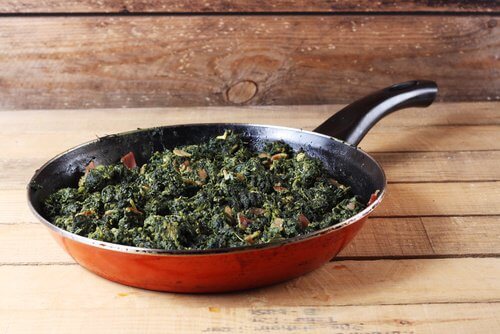Make Sure to Never Reheat These 7 Foods

In your home, you’re more likely to follow the rule of not letting food go to waste. We usually keep food in the refrigerator and reheat it a day or two later so that it doesn’t end up in the trash. However, many people aren’t aware that there are some foods that you should never reheat because they can cause health problems.
Learn here which food we should never reheat.
Never reheat the following foods
Chicken
Chicken is one of the most common foods in the refrigerator because it keeps well and retains its flavor after reheating it. However, you should eat chicken freshly cooked or cold.
Even though you might not be able to tell, reheating chicken changes its protein composition which can lead to problems with digestion. If you don’t eat chicken after preparation, you can reheat it, but only at low temperatures.
We recommend you also read:
Mushrooms

There are so many different ways to prepare them and reheating them sounds like a good idea. However, they’re best when freshly prepared because they still have all their beneficial properties and health benefits.
If you have some mushrooms leftover, it’s better to eat them cold. Mushrooms also undergo changes in composition when we reheat them and that can cause stomach pains and bloating.
Potatoes
Potatoes are full of nutrients and although you can keep them in the refrigerator for a few days, you should never reheat them. Reheating them changes their flavor, alters their properties, and can even make them toxic.
The best thing to do with leftover potatoes is to use them in purees or cold salads.
Spinach

This green vegetable is recommended for your diet. However, you should never reheat this food because it contains a high percentage of nitrates. These nitrates, when subjected to high temperatures are converted into nitrites. And so, nitrites are not healthy and can have serious effects on your health. You should always eat your spinach fresh.
Beets
Beets also contain nitrates which turn into harmful nitrites when we reheat them. Therefore, this is another food that you should avoid reheating if you don’t want health problems. In fact, in order to enjoy the maximum benefits of beets, they should be eaten in salads or smoothies.
Celery

If your soup contains celery, avoid reheating it to prevent damage to your body. As with the foods above, celery contains nitrates that convert into nitrites when we reheat them.
This means it can turn into a potentially carcinogenic food when it’s reheated. Therefore, you should try to pick the celery out of your soup before you reheat it.
Eggs
Most people don’t reheat eggs because it changes their aroma and flavor. However, just in case, it’s important to know that reheating eggs can be damaging to your health. This is because the compounds they contain can become toxic when subjected to high temperatures.
You may also like to read:
How can I safely heat food?

Although we should never reheat the above-mentioned foods, it doesn’t mean that you can’t reheat other leftovers. In order to safely reheat foods, keep these following tips in mind:
- Make sure to do it quickly to bring the temperature up to 150° F in the center of the food.
- Reheat only the amount that you’re going to eat.
- Cooked foods should not come into contact with raw foods to avoid cross-contamination.
- Remember that all ingredients are different and may not warm the same. When reheating more than one type of food, cover them so that they’ll warm evenly.
- If you don’t think you’ll be able to eat the food within 4 days, it’s better to freeze it.
All cited sources were thoroughly reviewed by our team to ensure their quality, reliability, currency, and validity. The bibliography of this article was considered reliable and of academic or scientific accuracy.
Knize, M. G., Salmon, C. P., Pais, P., & Felton, J. S. (1999). Food heating and the formation of heterocyclic aromatic amine and polycyclic aromatic hydrocarbon mutagens/carcinogens. Advances in Experimental Medicine and Biology. https://doi.org/10.1007/978-1-4615-4853-9_12
Hord, N. G., Tang, Y., & Bryan, N. S. (2009). Food sources of nitrates and nitrites: The physiologic context for potential health benefits. American Journal of Clinical Nutrition. https://doi.org/10.3945/ajcn.2008.27131
This text is provided for informational purposes only and does not replace consultation with a professional. If in doubt, consult your specialist.








